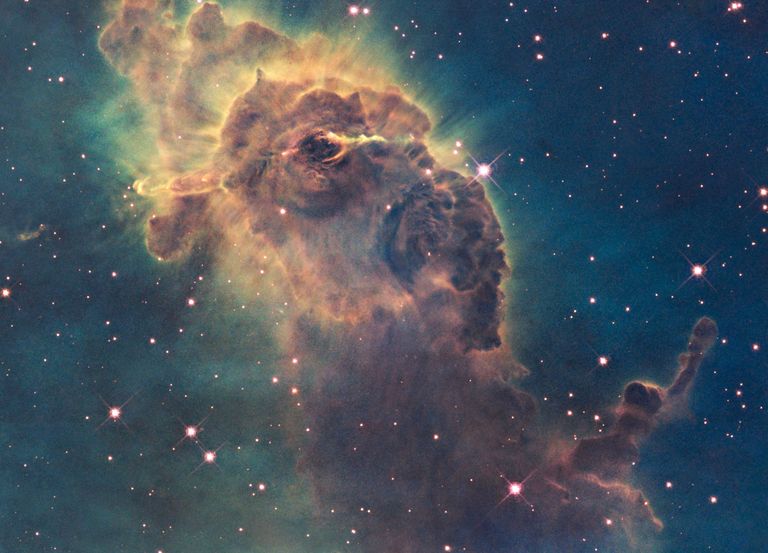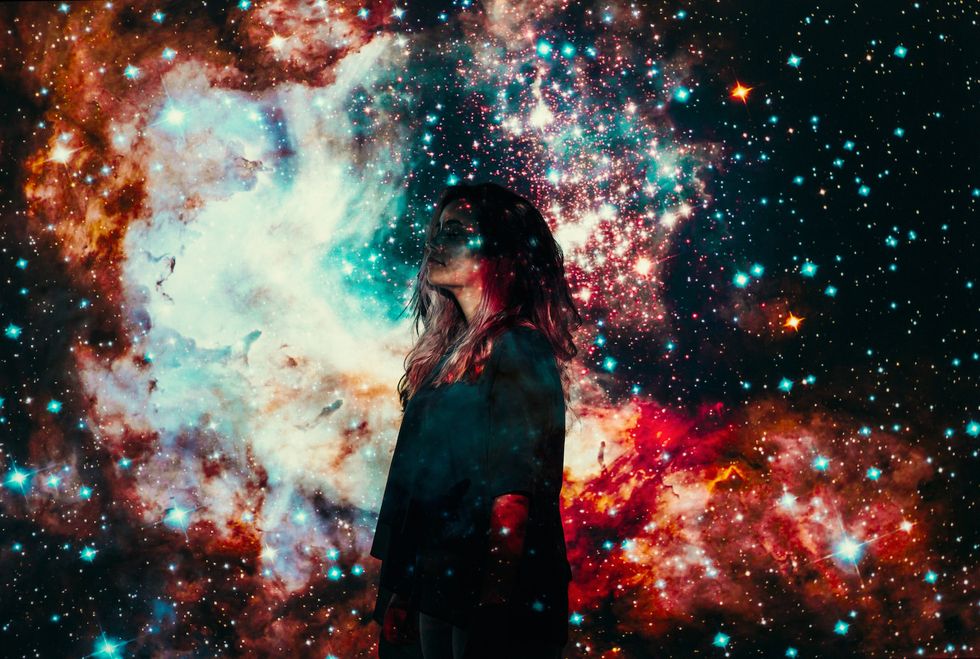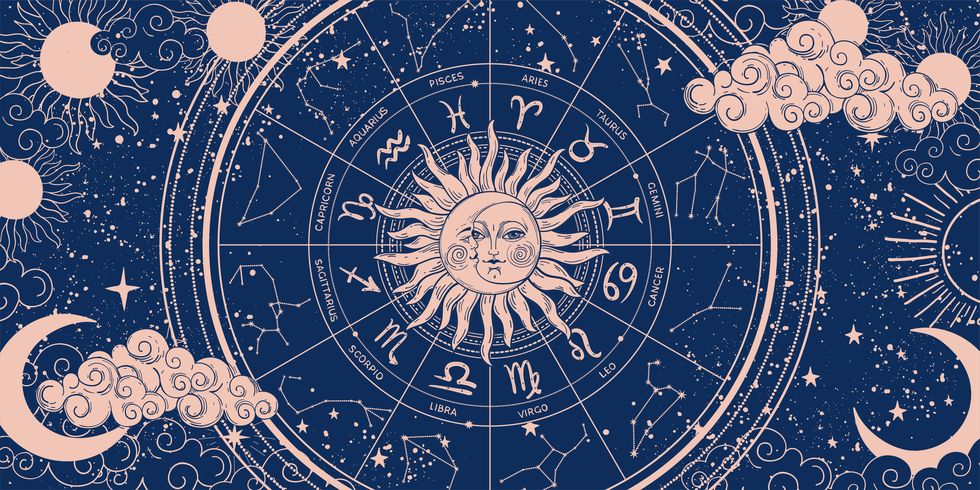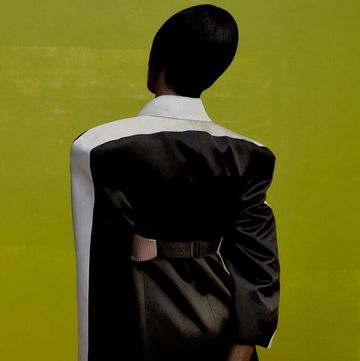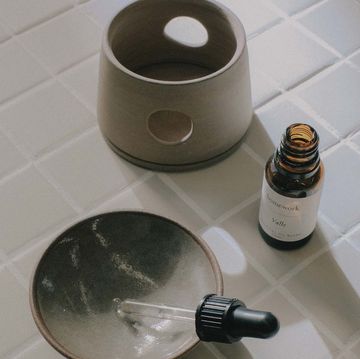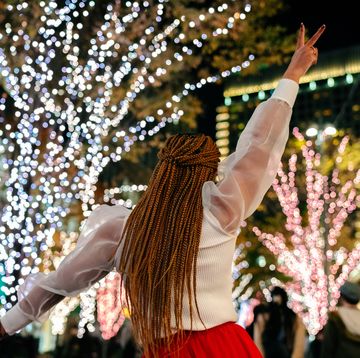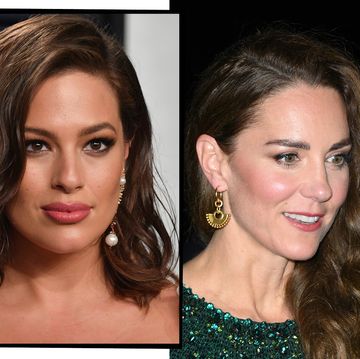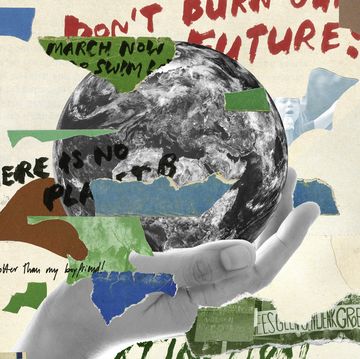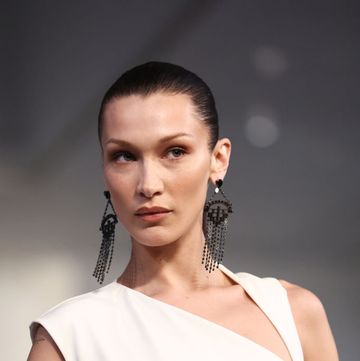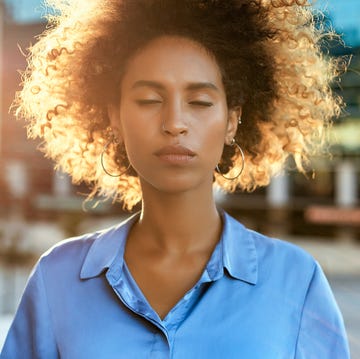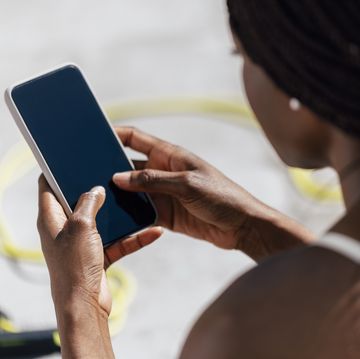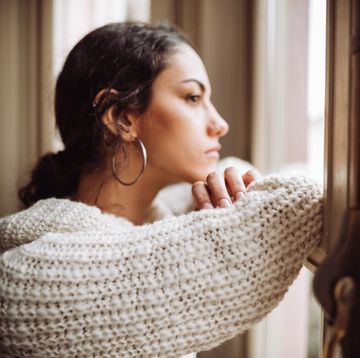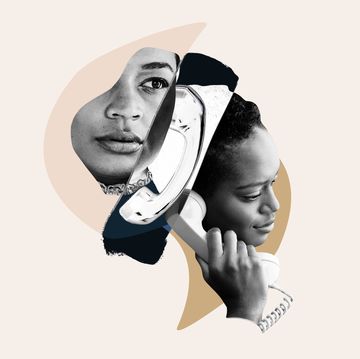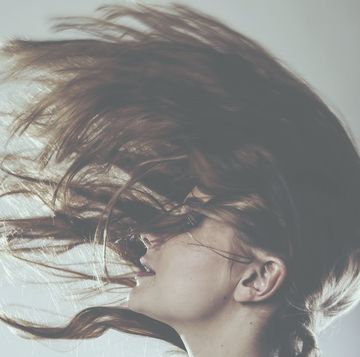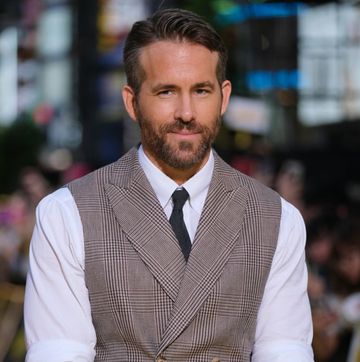A few years ago, I went through a phase of reading my horoscope every day. Sometimes I'd hunt out four or five versions until I found one that spoke to my circumstances. In the back of my mind I knew this was weird (at best); a neurotic habit I'd slipped into because my life felt overwhelming. A habit which hadn't been so bad since I was a teenager.
According to a study from the University of Wisconsin, 70% of information in newspaper horoscopes is positive. Once, in a 'day-in-the-life-of' article from a leading physics professor, I read that she checked hers each morning, despite never believing a word because, she argued, there was value in that small daily dose of positivity. Your subconscious grabs onto it and it acts like a booster, a wheatgrass shot for the mind. I would think about this as I sipped my triple-shot flat white and googled 'Leo daily horoscope'.
I remember the frisson of excitement when I discovered astrology, aged 12. It was like finding life's complex blueprint; inky-black and richly patterned with spider's-silk-fine lines delineating future/ past, self/ other and so on.
What mattered to me wasn't so much the content, it was all nigh-on indecipherable (and I still don't get how astrologers come to the conclusions that they do). It was more that, the fact of astrology's existence - the fact that there even a blueprint - implied that life was not random, meaningless and isolating. There was some cosmic architect devising it all; a particularly alluring notion for a chubby 12-year-old, whose nickname at school was Danepak Bacon. I didn't have many friends, I spent so many evenings alone in the local library that I read through the entire children and young adult's section before my 13th birthday.
So at the heart of my fascination with astrology was an oblique loneliness which was infinitely soothed by the sense that the universe had my back.
It was that same feeling that I craved last year when I went through a period of such mind-bending anxiety that I started to see spiders in my peripheral vision. Mostly, I felt physical dread; a sharp pain in my solar plexus which would come and go like an attack. I was eventually prescribed beta blockers and some counselling. Why it happened isn't really the point - work stress, a failed relationship, family things, my life just went off-track.
Anyway, in that period I started to cruise the horoscopes looking for signs that things were on the up. My heart would sink every time Mercury went retrograde (because we all know that a Mercury backtrack means communications go haywire and travel plans are disrupted and I already felt haywire enough). I looked forward to Leo season because that was cosmic 'time to shine.' And I took solace in the fact that with my sun sign being Leo, my moon being Scorpio and my rising sign, Sagittarius, things were bound to get intense from time to time (it's, like, a hectic trio).
'When people are feeling stressed and anxious,' explains Dr Sarah Crawford, chartered counselling psychologist at Nightingale Hospital, 'they engage in two main behaviours, one is avoidance and the other is seeking reassurance. A horoscope provides reassurance.'
Is that such a bad thing? Well, that depends. Much like believing in God or Allah - believing in a higher cosmic power is essentially an expression of faith. Religion, spirituality, astrology, call it what you want, but at it's heart, they all come from a deeply human drive to understand and be closer to the transcendent.
And faith - be that religious, spiritual, whatever - has been shown to have some resolutely positive effects on mental health. In fact, one review of more than 3,300 recent scientific studies into the relationship between religion/ spirituality and mental health found that, on average, people who had some kind of faith were less likely to be depressed, reported higher self-esteem, were generally less anxious and less prone to suffer from problems with addiction.
In trying to explain the findings, Dr Harold G Koening, professor in the Departments of Medicine and Psychiatry at Duke University Medical Center in the US, wrote that faith 'provides resources for coping with stress…' because 'strongly held beliefs give meaning to difficult life circumstances and provide a sense of purpose.'
Basically, thinking that there's some divine reason behind the fact that you didn't get the job you were desperate for or soothing yourself with the thought that, despite how painful it is, your relationship didn't work out because 'it wasn't meant to be', cushion life's emotional blows.
You don't let the negatives wear you down, Koening theorised, if you have the strong sense that in the end, something else - bigger, better or just is fated to come along. As my 12-year-old self realised, 'the universe has your back' is a powerful balme.
And what's even more interesting is that, in reviewing more than 10-years' worth of data - thousands of scientific studies, thousands of participants - Koening not only came to the conclusion that 'on the balance, [faith] is generally associated with greater well-being, improved coping with stress, and better mental health.' But also that 'this relationship with mental health has physical health consequences.'
He details studies that found a link between faith and lowered blood pressure, lower rates of heart disease and even a lowered likelihood of dementia. If you live a more chilled out life, where you don't let negative emotions grind on you, if you keep in mind that even in the worst times, something good will come along, it can make you a happier and all-round healthier person.
In our largely secular world (not sure about you, but the last time I went to church was aged 5, with my nana), grabbing onto astrology as an expression of kind of faith, might not be so bad.
Of course, there are also some notable differences between horoscopes and religion. For a start, Koening talks about 'deeply held beliefs'. Even when I was checking them three times a day, everyday, I still thought that, y'know, horoscopes are probably made up.
Plus, while both require faith in a higher power, generally religion and spirituality include some element of ritual (like prayer or meditation, both of which have been shown to be good for you on a neurological level), a bit of Church-going and certain rules to live by (like loving your neighbour, trying to practice compassion, only drinking in moderation and only sleeping with 'special' people in your life). Whether you agree with them or not, these are all important elements when it comes to bringing about the positive effects that Koening describes. And they don't really form a part of that daily/ weekly/ monthly horoscope habit.
So the positives are somewhat curtailed. Plus, as Dr Crawford points out, 'the trouble with seeking reassurance in a positive message is that it provides short-term relief, but it doesn't necessarily provide a long term solution.
'With horoscopes, people want guidance, especially when there's loads of difficult things going on in the world. But it's all external validation, they're not finding positivity within themselves, they're also not managing their distress and they're not building confidence in their own ability to cope. They're always looking for this external guiding voice to make things better. And it becomes addictive because people start looking for more and more reassurance in different areas to protect their own vulnerability.'
I stopped checking them around the time I started counselling. It wasn't a conscious decision. In fact, I didn't realise that I wasn't reading my horoscope until a few weeks had passed and I clicked out of curiosity. When I did read it again, the information seemed more generic than I remembered it, probably because I was in a better place and not looking for signs and symbols to sooth me.
Now I might read them once a week - I still hover between belief and disbelief; I still want them to be real, I still enjoy the vague sense of control over my circumstances that they offer, but I don't them. If times get tough again, though, who knows? Maybe I'll pick up my habit again. After all, sometimes we could all use a little daily dose of positivity.
ELLE Collective is a new community of fashion, beauty and culture lovers. For access to exclusive content, events, inspiring advice from our Editors and industry experts, as well the opportunity to meet designers, thought-leaders and stylists, become a member today HERE.
